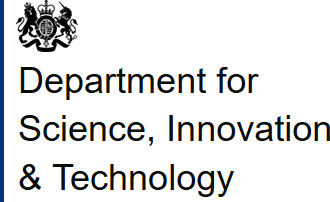PRESS RELEASE : Technology Secretary announces investment boost making British AI supercomputing 30 times more powerful [November 2023]
The press release issued by the Department for Science, Innovation and Technology on 1 November 2023.
British supercomputing to be boosted 30-fold with a new Cambridge computer and Bristol site.
- British supercomputing to be boosted 30-fold with a new Cambridge computer and Bristol site
- the 2 computers will form the government’s ‘AI Research Resource’, which helps researchers discover how to make the most advanced models of AI safe and drive other breakthroughs
- this comes as the UK opens its AI Safety Summit at Bletchley Park, to consider the risks of AI and discuss their mitigation through international action
The government’s Frontier AI Taskforce and leading British researchers will be equipped with cutting edge supercomputers to analyse the safety of advanced AI models, thanks to new investment in the ‘AI Research Resource’.
The tool will build and connect 2 new supercomputers across the UK, giving researchers access to resources with more than 30-times the capacity of the UK’s current largest public AI computing tools. They will be able to use the machines, which will be running from summer 2024, to analyse advanced AI models to test safety features and drive breakthroughs in drug discovery and clean energy.
The investment into the AI Research Resource has been tripled to £300 million, up from £100 million announced in March 2023, in a bid to further boost UK AI capabilities.
This will bolster Isambard-AI, which will be Britain’s most advanced computer. Based at the University of Bristol, it is set to be 10 times faster than the UK’s current quickest machine, thanks to 5,000 advanced AI chips from Nvidia in a supercomputer built by Hewlett Packard Enterprise (HPE).
The investment will also connect Isambard-AI to a newly announced Cambridge supercomputer called ‘Dawn’. This computer – delivered through a partnership with Dell and UK SME StackHPC – will be powered by over 1000 Intel chips that use water-cooling to reduce power consumption. It is set to be running in the next 2 months and target breakthroughs in fusion energy, healthcare and climate modelling.
Chaired by Ian Hogarth, the Frontier AI Taskforce will have priority access to the connected computing tools to support its work to mitigate the risks posed by the most advanced forms of AI, including national security from the development of bioweapons and cyberattacks. The resource will also support the work of the AI Safety Institute, as it develops a programme of research looking at the safety of frontier AI models and supports government policy with this analysis.
Announcing this investment at the AI Safety Summit at Bletchley Park, Science, Innovation and Technology Secretary Michelle Donelan said:
Frontier AI models are becoming exponentially more powerful. At our AI Safety Summit in Bletchley Park, we have made it clear that Britain is grasping the opportunity to lead the world in adopting this technology safely so we can put it to work and lead healthier, easier and longer lives.
This means giving Britain’s leading researchers and scientific talent access to the tools they need to delve into how this complicated technology works. That is why we are investing in building UK’s supercomputers, making sure we cement our place as a world-leader in AI safety.
Bristol’s Isambard-AI computer, first announced in September, will be backed by a £225 million investment.
The supercomputer, 10 times faster than the UK’s current fastest machine, will deliver over 200 ‘petaflops’, meaning it can make 200,000,000,000,000,000 calculations (that’s 200 quadrillion) every second. By comparison, the newest smartphones today deliver only trillions of calculations per second, and a human would have to make a decision every second for 6.3 billion years to match what this computer can calculate in one second.



